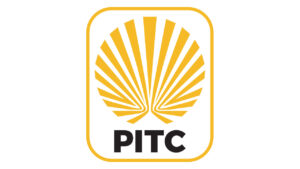AN AGENCY of the Department of Trade and Industry (DTI) should oversee rice imports to comply with the implementing rules and regulations of the Rice Tariffication Law of 2019, the Foundation for Economic Freedom, Inc. (FEF) said.
In a statement on Monday, FEF said the Philippine International Trading Corp. (PITC) has a mandate to import rice “if there is an urgent justification for importing rice.”
“This is a better option because the public perception of the Department of Agriculture is that it should promote the interests of the cultivators rather than the consumers, and DTI is legally mandated to perform the latter,” the organization said.
Congress is currently amending the law to restore the power of the National Food Authority (NFA) to import rice and engage in rice retailing.
The law, or Republic Act No. 11203, privatized the function of importing rice formerly carried out by the NFA. It allowed private traders to bring in their own shipments provided they pay a tariff of 35% on Southeast Asian grain. The rules have since been tweaked to allow such tariffs for rice from any source.
The NFA had been reduced to maintaining an emergency inventory from domestically grown rice.
“The law is being amended because of the perception among our selected policymakers and officials that it has not arrested rising prices,” said the FEF.
“What is not being said is that the soaring rice prices were brought about by exogenous factors that are … beyond the control of the law,” it added.
The factors include the Ukraine-Russian conflict, which resulted in higher fuel, fertilizer, and grain prices; the export ban on non-basmati rice by the Indian government; and the conflict in the Middle East, which put pressure on fuel prices.
“Ironically, the law is being blamed as the culprit behind the rising rice prices. Some legislators and senior officials are offering the solution to bring (the NFA) back to its previous role by granting it again the power to import rice and regulate rice retail trading,” the FEF said.
“This proposal will reverse all the beneficial reforms in the rice policy framework and will reinstate, for the wrong reasons, the previous framework, which was historically prone to governance vulnerabilities and fiscal unsustainability,” it added.
Aside from giving importing duties to the PITC, the FEF said that the government should consider its proposal last year of temporarily reducing the rice import duty to 10% to lower the landed cost of imported rice, which may result in lower wholesale and retail prices.
It added that instead of giving back NFA’s other functions, the agency should instead ramp up its “integral function,” which is to procure palay and build a “buffer stock” for emergency situations.
“Unfortunately, NFA’s previous performance in this role leaves much room for improvement. No one is telling the reason why, though the agency persistently claims that its prize stabilization function should be restored,” the FEF said.
The FEF also asked the Congress to look into the results of studies on how the Rice Competitiveness Enhancement Fund was implemented and how the National Rice Program performed before proposing amendments to the law.
“They should be able to distill lessons and insights learned from these evaluation studies, adopting rigorous methodologies in analyzing empirical data and evidence,” the FEF said.
“Only then can we have a rational and scientific approach to addressing the challenges hounding our rice sector,” it added. — Justine Irish D. Tabile
